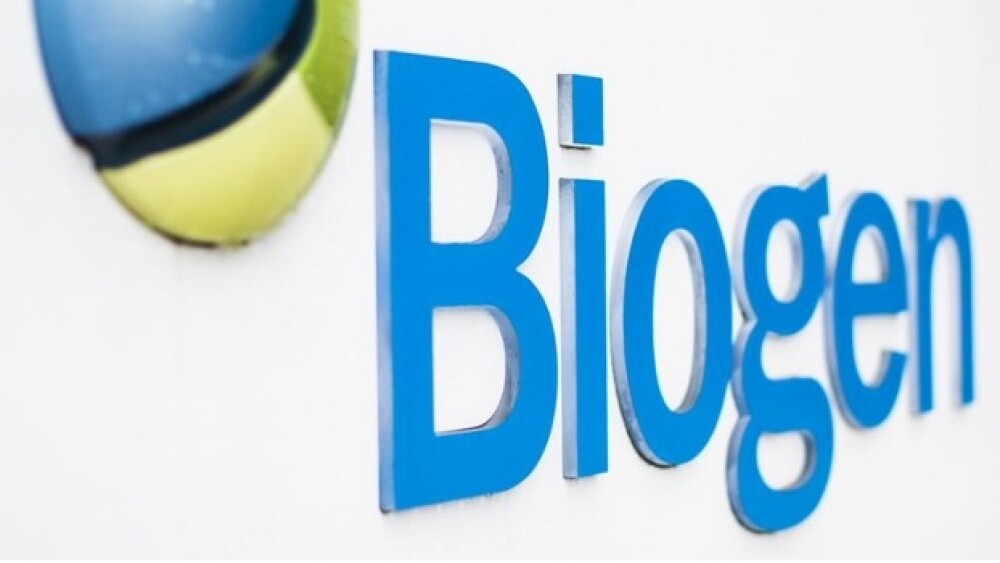Biogen plans to build a new gene therapy manufacturing plant in Research Triangle Park, North Carolina. The site is on the company’s manufacturing campus.
Biogen plans to build a new gene therapy manufacturing plant in Research Triangle Park (RTP), North Carolina. The site is on the company’s manufacturing campus.
“We plan to build differentiated, sustainable and advanced manufacturing capabilities to support our gene therapy programs and collaborations,” said Nicole Murphy, senior vice president, Global Manufacturing and Technical Operations. “This additional investment underscores our commitment to RTP and our mission to deliver a reliable supply of high-quality medicines to the patients we serve. We are poised with a diverse workforce that is passionate about making a difference in the lives of patients and we look forward to welcoming new colleagues from the community to join us in that mission.”
The 175,000-square-foot plant will cost about $200 million. Biogen indicates they will add 90 more staffers to its existing workforce of about 1,900 at its two facilities in RTP.
The last year or two has shown a big push by biopharma companies into cell and gene therapy manufacturing facilities. On January 15, 2021, Thermo Fisher Scientific announced the completion of its acquisition of Henogen SA, Groupe Novasep SAS’s viral vector manufacturing business in Belgium. The deal was for €725 million in cash.
That was only the most recent news of Thermo Fisher’s push into the gene and cell therapy space. In March 2019, Thermo Fisher acquired Brammer Bio for $1.7 billion. Brammer Bio is a contract development and manufacturing organization (CDMO) focused on manufacturing viral vectors for gene and cell therapies. Brammer Bio is located in Cambridge, Massachusetts.
A month later, Thermo Fisher announced plans to invest $50 million in its manufacturing site in St. Louis County. The goal was to expand its manufacturing capabilities for biologic drugs. The expansion added 64,000 square feet to its factory at the intersection of Interstate 70 and Interstate 170, doubling its capacity at that site. In August 2017, Thermo Fisher bought Patheon for $7.2 billion. Patheon is also a CDMO.
This was underscored by a deal Thermo Fisher signed with Amicus Therapeutics in July 2019. Under that agreement, Thermo Fisher provided Amicus with immediate clinical and commercial manufacturing capabilities and capacity for Amicus’ intrathecal AAV Batten disease gene therapy programs.
That deal had three components: first, the Batten disease programs, with R&D production technology and capabilities related to CLN6, CLN3 and other possible Batten disease programs transferred to and developed by Thermo Fisher’s viral vector business; second is the CLN6 Batten disease gene therapy; and the third was a plan to collaborate to develop platform manufacturing abilities for a broader portfolio of AAV gene therapy.
Industry reports indicate there are more than 300 gene and cell therapies in development, all of which require resources for viral vector manufacturing at different scales. Some vaccines, such as the COVID-19 vaccine developed by Johnson & Johnson and AstraZeneca-University of Oxford, utilize other types of viruses to deliver either genetic material of the COVID-19 vaccine or other viral antigens to the individual’s cells, so their immune systems can learn to identify the COVID-19 virus.
In the case of the AstraZeneca vaccine, it is a chimpanzee adenovirus. For the J&J vaccine, it utilizes a weakened version of adenovirus 26, which is a common cold virus. Gene therapies and many cell therapies also use a variety of viruses, often adeno-associated viruses (AAV), to deliver genetic material into the body.
Also in January 2021, Fujifilm Corporation invested $40 million in Fujifilm Diosynth Biotechnologies, its Contract Development and Manufacturing Organization (CDMO), for a new factory in the Boston area, specifically Watertown, Massachusetts. The new process development and manufacturing facility will focus on viral vectors and advanced therapies. It is the third location for Diosynth’s CDMO viral vector services.
They plan to start operations in the fall of 2021. The new site will host experimental and analytical equipment needed for viral vector and advanced therapy process development. Its contract manufacturing services for early phase clinical trials are planned to begin in the fall of 2021, two years later.
A year ago, Nationwide Children’s Hospital’s Abigail Wexner Research Institute (AWRI) in Columbus, Ohio, announced plans to build a gene therapy manufacturing plant. A few months before that Harvard University indicated it would invest $50 million in a not-for-profit manufacturing and training site for cell and viral vectors.
And when Moderna inked a manufacturing deal with Swiss-based Lonza in May 2020, the focus was on manufacturing the COVID-19 vaccine, but the contract was a 10-year strategic collaboration that could include manufacturing of other vaccines and gene and cell therapies.
As biologics, gene therapy and immuno-oncology become more advanced and more mainstream, the demands for specialized manufacturing have increased. Reproducing commercial scale quantities of large, complex molecules presents a number of operational and technological challenges. It has been pointed out that an aspirin molecule contains 21 atoms, but a modern biopharmaceutical molecule contains anywhere from 2,000 to 25,000 atoms. Genentech’s Herceptin for breast cancer, for example, contains more than 25,000 atoms.





